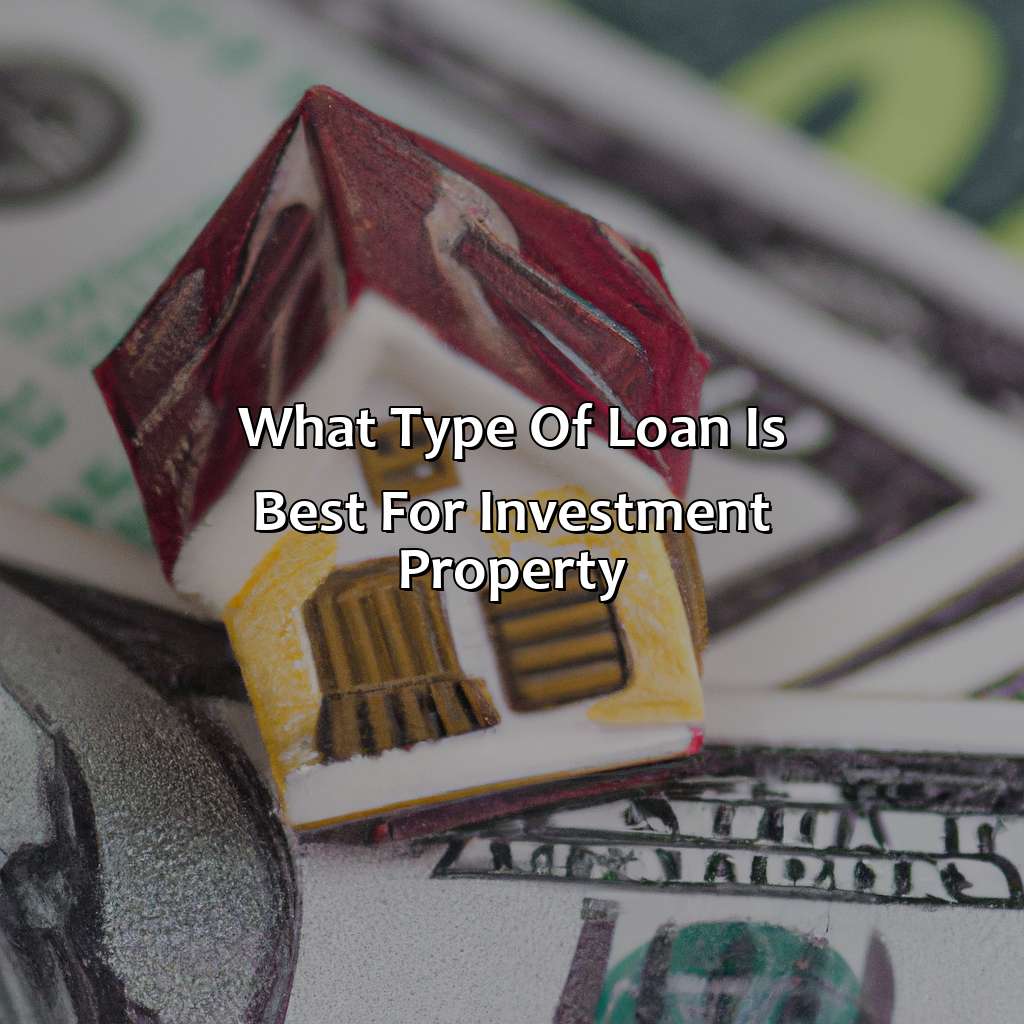What Type Of Loan Is Best For Investment Property?
Key Takeaway:
- Different types of loans are available for investment properties, including traditional mortgage loans, government-backed loans, commercial loans, and hard money loans. Each of these loan types has unique features, benefits, and drawbacks, so it is important to carefully research and compare your options before choosing a loan.
- Traditional mortgage loans are a popular choice for investors and come in two types: fixed-rate and adjustable-rate mortgages. Fixed-rate mortgages have a set interest rate, which provides stability and predictability in monthly payments. Adjustable-rate mortgages have a variable interest rate, which can result in lower initial payments but may be subject to increases over time.
- Government-backed loans, such as Federal Housing Administration (FHA) loans, Veterans Affairs (VA) loans, and United States Department of Agriculture (USDA) loans, offer lower down payment requirements and more flexible credit score requirements, but may have higher upfront costs and more stringent property requirements.
Are you considering investing in property, but unsure what loan option is best for you? This article will guide you through the types of loans available to invest in property and their benefits. You’ll be empowered to make the best informed decision for your finances.
Types of loans for investment property
When it comes to purchasing an investment property, choosing the right type of loan is crucial. Here are six types of loans to consider for financing investment properties:
- Conventional loans: These are traditional mortgages from a private lender and typically require a 20% down payment.
- FHA loans: These are backed by the Federal Housing Administration and require a smaller down payment, making them a good option for first-time investors.
- VA loans: These are available to veterans and offer favorable terms, including no down payment and no private mortgage insurance.
- USDA loans: These are backed by the United States Department of Agriculture and offer low-interest rates and no down payment, but are only available in certain rural areas.
- Hard money loans: These are short-term, high-interest loans that are secured by the property itself.
- Portfolio loans: These are offered by lenders who keep the loans in-house and are often more flexible with their terms.
In addition to these common types of loans, it’s important to note that lenders may have their own unique loan options that cater to investors.
One fact worth mentioning is that according to Forbes, “The average 30-year fixed mortgage rate rose 10 basis points to 3.09% from a week ago. The 15-year fixed mortgage rate rose 6 basis points to 2.38% from a week ago.” This information serves as a reminder to stay up to date on current mortgage rates when considering loan options for investment properties.
Remember, finding the right loan for your investment property can take time and research, but it is worth it in the long run.
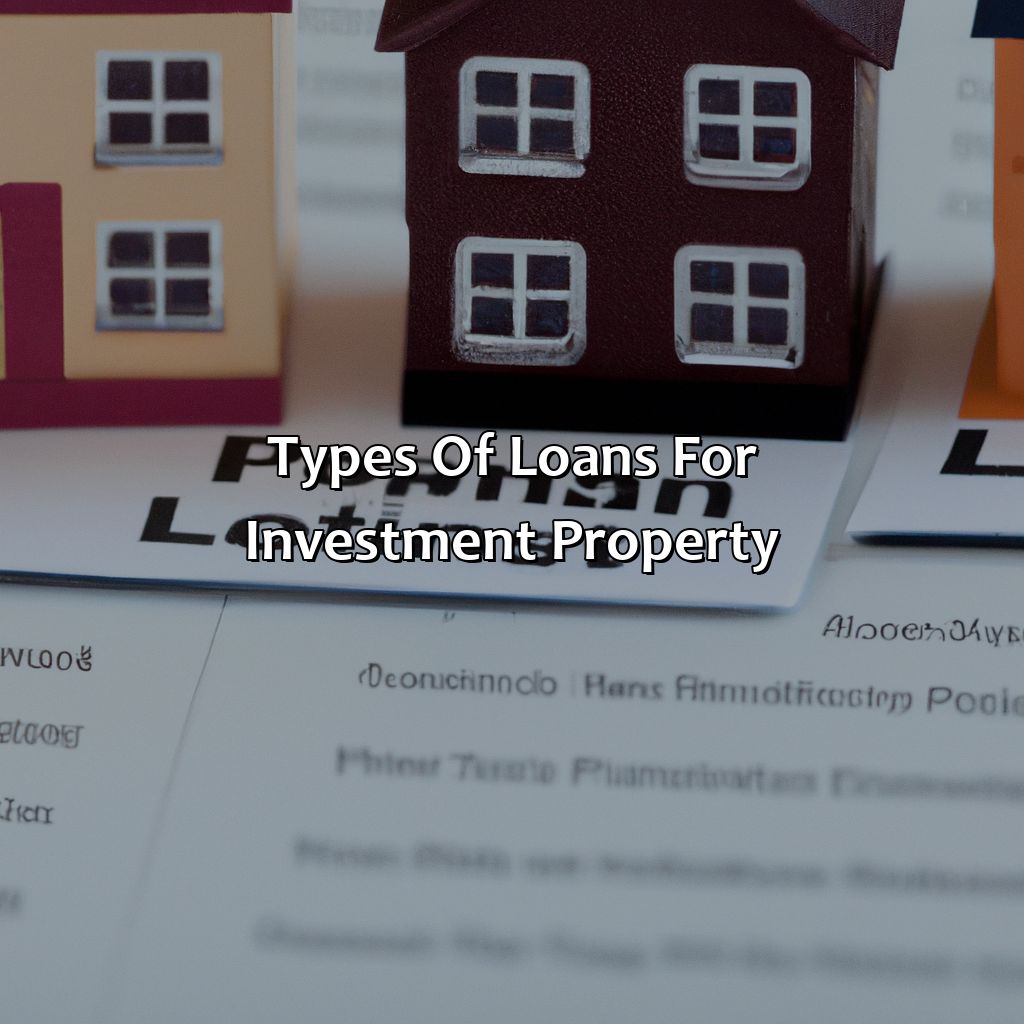
Image credits: retiregenz.com by James Duncun
Traditional Mortgage Loans
Want to know the top loan choices for your investment property? Check out traditional mortgage loans! Fixed-rate mortgages and adjustable-rate mortgages are two options. Research the pros and cons of each one to make an educated decision.
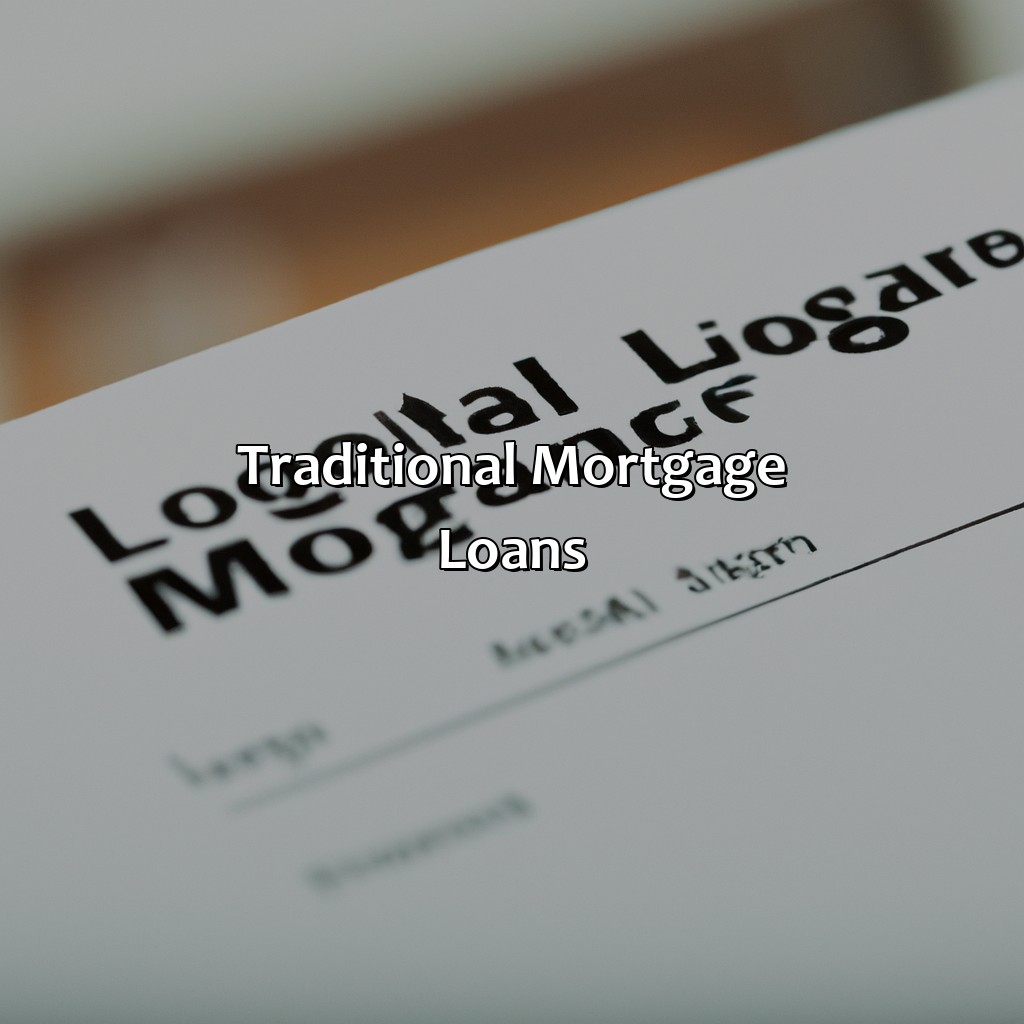
Image credits: retiregenz.com by Adam Jones
Fixed-Rate Mortgage
A consistent return on investment is essential, making a fixed installment loan ideal for purchasing an investment property. The repayment amount and duration remain the same during the life of the mortgage. Thus, the loan is less affected by market fluctuations and provides predictable payments.
With a fixed-rate mortgage, the interest rate remains unchanged for the entirety of the loan period. Therefore, investors can plan their finances accordingly with any sudden financial shifts having little impact. By maintaining its value throughout economic cycles, this type of mortgage is desirable for investors seeking minimal risk.
Fixed-rate mortgages offer a range of terms from ten years to thirty years to align with an investor’s needs. In addition, owners can refinance at any point in time if it becomes advantageous.
An investor currently leasing a vacation rental decided to purchase the house using this kind of mortgage after facing various issues with their existing arrangement. A fixed repayment scheme ensured long-term stability while protecting against unforeseen losses in income.
Get ready for a rollercoaster ride with adjustable-rate mortgages – they’re like the stock market, but for your home!
Adjustable-Rate Mortgage
An Adjustable Mortgage is a type of loan with a fluctuating interest rate, as per the prime lending rate. They are designed for those who want to benefit from low-interest rates and/or refinance their properties.
With adjustable-rate mortgage loans, borrower’s interest rates change over time during the course of their loans. ARMs generally start with lower interest rates than fixed mortgages. However, their interest rates depend on several factors such as index rate, margin, and caps. Index rates can vary in different regions and margins depend on lenders’ policies. Moreover, borrowers can choose between initial fixed-rate periods before they move to floating/adjustable rates. Under this category, there are three types: Hybrid ARMs (fixed for a specific period then adjusts), Variable Rate Mortgages (bearing some similarities with hybrids), and Balloons.
It is advisable to be informed and cautious when choosing an adjustable mortgage loan since this would affect your finances significantly. Some benefits include flexibility for changing scenarios like refinancing or selling property within 3-5 years whilst also being able to capitalize on low-interest months; however, if interest fluctuations happen too fast in either direction or exceed caps imposed by lenders – it could result in expensive repayments that make loan repayment burdensome.
Looking back at history, concerns have been raised about the credibility of some adjustable mortgage loans in situations where credit scores were less prioritized than actual income. This led to instances where individuals were given favorable terms and allowed to take out mortgages they couldn’t sustain long-term; thus contributing to the 2008 Global Financial Crisis when many borrowers defaulted resulting in widespread home foreclosures due to reckless bank lending policies across countries involved in the market. Unhindered by supervision regulations infringements from banks onto consumer protection frameworks around financial products comprising predominantly ARM loans, caused users cost devastation, becoming hesitant towards gaining mortgages, leaving a lasting impact on global economy stability after prolonged repairs made these instances stand out for generations onwards.
Government-backed loans: The only time the government has your back is when it comes to getting a loan.
Government-Backed Loans
Want to know which loan option is best for your investment property? Look into government-backed loans! Three popular ones are FHA Loans, VA Loans, and USDA Loans. Each of these has its own advantages, which can help you get financing for your investment.
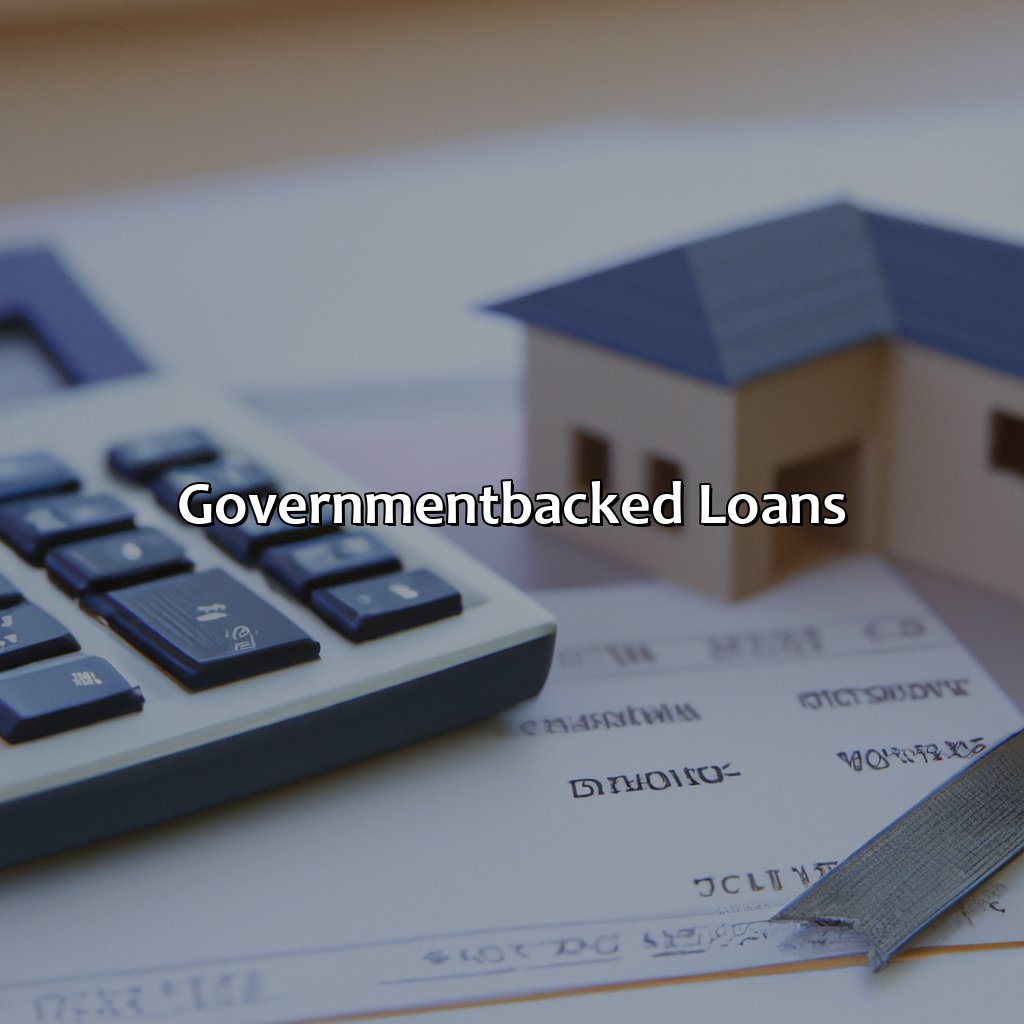
Image credits: retiregenz.com by James Jones
Federal Housing Administration (FHA) Loans
Investors looking to purchase investment property can benefit from Federal Housing Administration (FHA) loans. These are government-backed loans that offer low down payments and flexible credit requirements, making them a popular choice for first-time homebuyers and investors alike.
FHA loans have certain requirements that must be met by both the borrower and the property in question. For example, the property must be owner-occupied or a multi-unit (up to four units) dwelling, and the borrower must have a minimum credit score of 580. Additionally, FHA loans require mortgage insurance premiums, which can increase overall loan costs.
One unique feature of FHA loans is their ability to finance the cost of repairs or renovations to the property through what is known as a 203(k) loan. This allows investors to purchase properties that may need some work and make improvements without needing separate financing.
Investors should weigh the benefits and drawbacks of FHA loans before deciding if they are the best option for their investment property needs. However, with their low down payments and flexible credit requirements, FHA loans can help investors jumpstart their real estate investments while minimizing risk. Don’t miss out on potential opportunities by not considering an FHA loan for your investment property purchase.
The only thing scarier than a warzone is dealing with the VA, but at least their loans have some perks.
Veterans Affairs (VA) Loans
One type of government-backed loan that investors may consider is a financing option for veterans. This loan is designed specifically for individuals who have served in the United States military and can offer several benefits, including lower down payments and potentially better interest rates.
Investors who are eligible for Veterans Affairs loans can use them to purchase or refinance investment properties. Additionally, these loans often do not require private mortgage insurance (PMI), which can make them an attractive option for those seeking long-term investments.
While VA loans may seem like a great option, it’s essential to do thorough research before applying. For example, the property must meet certain requirements and be considered safe and habitable. Furthermore, investors should understand that there are limits to how much they can borrow through this program.
Pro Tip: Before committing to any loan program, ensure that you fully understand the terms and conditions. Work with a trusted financial professional who has experience in real estate investing to help guide your decisions.
Just when you thought the USDA only cared about cows and crops, they go ahead and offer government-backed loans for investment properties too.
United States Department of Agriculture (USDA) Loans
A popular government-backed financing option for investment properties is provided by the agency responsible for agricultural policies and programs in the United States. This loan program enables investors in rural areas to obtain low-cost financing through partnerships with private lenders. Investors can utilize these loans for various purposes ranging from purchasing an investment property to developing it further.
The USDA loans are a reliable source of funding for investment properties in rural areas, as they offer competitive interest rates and generous terms. These loans are designed specifically for investors who meet specific eligibility criteria such as income limits, credit score requirements, and location-based conditions.
One unique aspect of these loans is that they can be structured based on the applicant’s income level or their property’s occupancy status. For example, some USDA loans allow low-income applicants to finance their projects without down payments or mortgage insurance fees. Additionally, those looking to acquire multi-family residential properties can enjoy special terms related to occupancy requirements.
Investor Joan had been struggling to find funding options for her new rental property project until she discovered that she qualified for a USDA loan due to the location of her property. She was able to secure financing at lower interest rates with more favorable terms than she could have obtained from conventional lenders, leading her to successfully complete her first investment deal.
Why ask for a small loan when you can take out a commercial one and invest in a whole strip mall? #businesssavy
Commercial Loans
Understand investment properties’ commercial loan types by focusing on the commercial loan section. This part contains two subsections: conforming and non-conforming commercial loans. Each has its own advantages, making one better for certain investment property uses than the other.
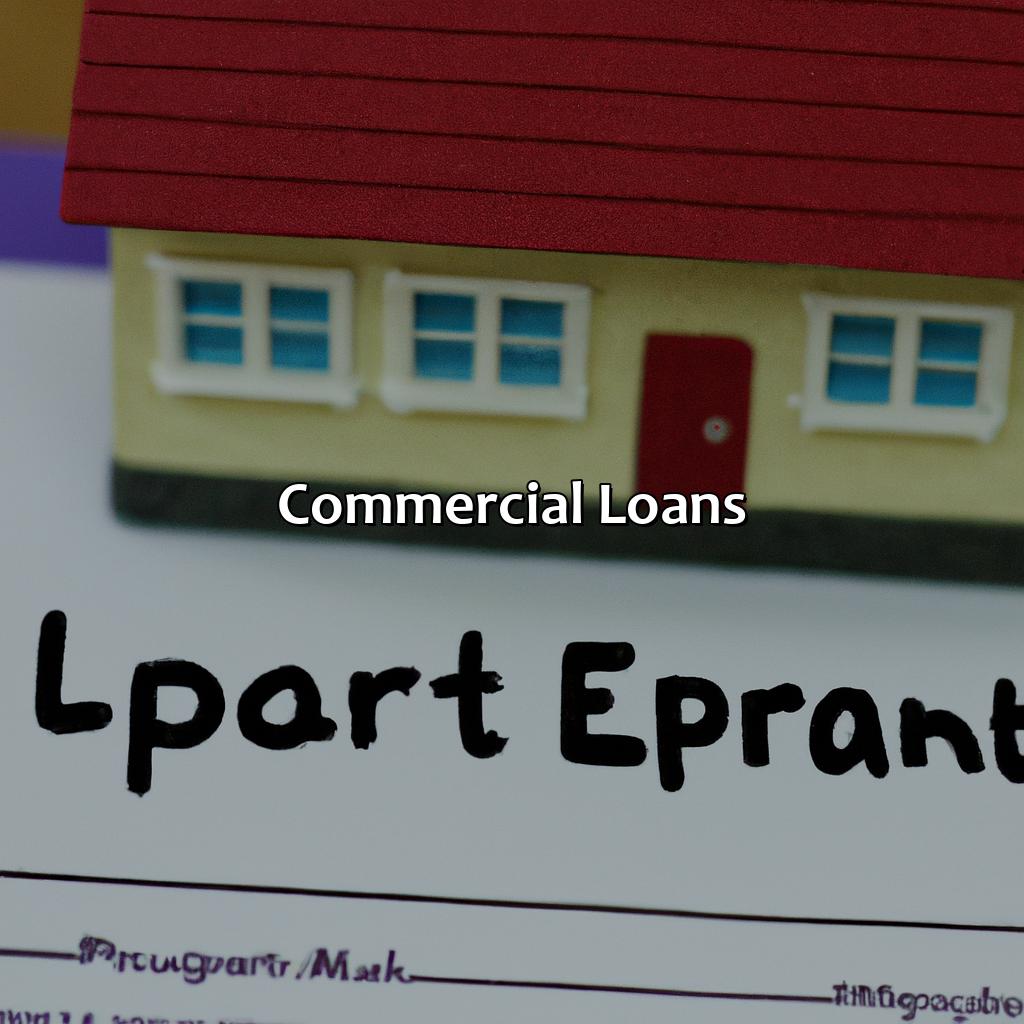
Image credits: retiregenz.com by Adam Arnold
Conforming Commercial Loans
Commercial loans that conform to the guidelines set forth by Freddie Mac and Fannie Mae are known as Conforming Commercial Loans. These loans are usually preferred by lenders because they carry lower interest rates and are easier to sell in the secondary market.
Borrowers looking for a Conforming Commercial Loan can expect lower upfront costs, more flexible terms, higher loan-to-value ratios, and a streamlined application process that simplifies closing. These loans also adhere to strict underwriting standards and typically require a personal guarantee from the borrower.
It is important to note that not all investment properties will qualify for a Conforming Commercial Loan. Properties with unique characteristics or high-risk attributes may require a non-conforming loan such as a portfolio loan or bridge loan.
Pro Tip: It’s crucial for borrowers to understand the differences between conforming and non-conforming commercial loans when considering financing options for an investment property. Get ready to embrace your inner rebel with non-conforming commercial loans – because playing it safe never made anyone filthy rich.
Non-Conforming Commercial Loans
Non-standard Commercial Loans refer to loans that don’t meet standard eligibility requirements for conventional bank financing. Such loans are given out by private or alternative lenders to investors looking to buy and develop investment properties. Often, these loans come with higher interest rates and fees because of a higher potential risk for the lender.
These types of loans can be useful to real estate investors who are finding it difficult to obtain conventional bank financing but would still like an opportunity to invest in commercial property. There are different types of non-conforming commercial loans available in the market such as stated income or no document loans, asset-based lending, hard money lending, bridge loans and mezzanine financing.
When opting for non-conforming Commercial Loan options, ensure you assess your financial situation carefully. It is essential that you have a well-laid-out plan on how you intend to repay the loan and secure cash flows from your property investments.
One recommendation is acquiring advice from reputable experts in the field who offer consultation services on growing your real estate portfolio while minimizing risks associated with these types of unconventional financing options. Another suggestion is conducting extensive research about different loan products offered by private and alternative lenders before settling on a decision.
When it comes to hard money loans, the only thing harder than the loan itself is trying to explain it to your significant other.
Hard Money Loans
The Most Advantageous Loans for Investment Properties
Many real estate investors choose to use hard money loans for their investment properties. These loans are asset-based and are typically provided by private individuals or companies rather than traditional banks. They have high interest rates and short repayment periods, but offer fast access to financing and do not require extensive credit checks. When considering hard money loans, it is important to carefully assess the terms and interest rates offered.
Hard money loans are advantageous for investors who need funding quickly for time-sensitive deals. They are ideal for borrowers who have poor credit scores or do not qualify for traditional loans. Borrowers can use these loans for a variety of property types, such as fix-and-flips, land acquisition, and rental properties.
It is important to work with a reputable lender who understands the nature of the transaction and can provide the necessary funding in a timely manner. Investors should also be prepared to present a solid business plan and exit strategy to secure the loan.
If you want to invest in real estate, it is important to explore all your financing options. Consider hard money loans as a viable option for securing funding quickly and easily for your investment properties.
Do not miss out on lucrative opportunities due to lack of funding. Partner with a reliable lender and explore your hard money loan options today.
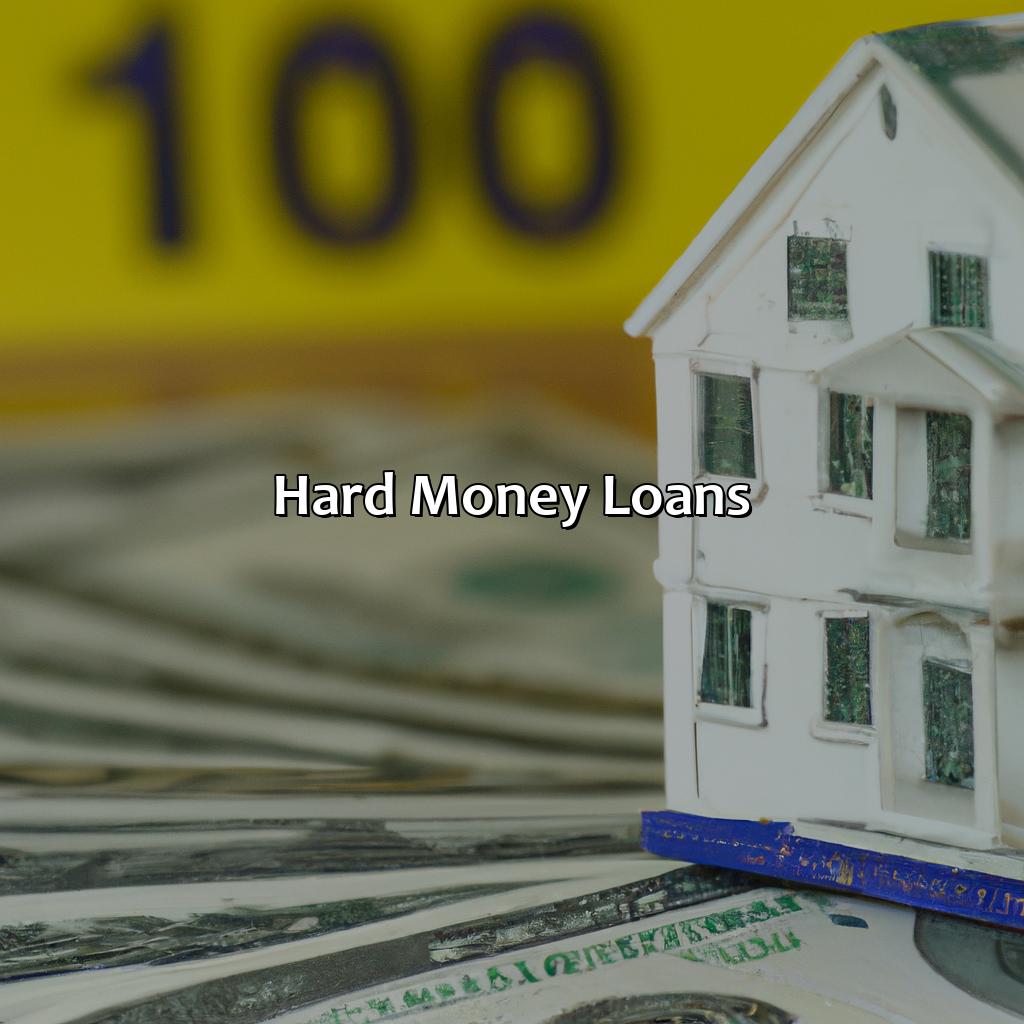
Image credits: retiregenz.com by Harry Arnold
Five Facts About What Type of Loan is Best for Investment Property:
Conventional loans typically require a 20% down payment for an investment property. (Source: Rocket Mortgage)
Investment property loans often have higher interest rates and stricter approval criteria. (Source: Forbes)
Hard money loans are a more flexible option for real estate investors, but come with higher interest rates and fees. (Source: BiggerPockets)
Government-backed loans like FHA and VA are not available for investment properties. (Source: The Balance)
The best type of loan for investment property depends on the investor’s financial situation, goals, and risk tolerance. (Source: NerdWallet)
FAQs about What Type Of Loan Is Best For Investment Property?
What type of loan is best for investment property?
There are several types of loans available for investment properties. Some of the popular options are conventional loans, FHA loans, VA loans, and hard money loans. The best type of loan depends on your financial situation and investment goals.
What is a conventional loan for investment property?
A conventional loan is a mortgage that is not guaranteed or insured by the government. These loans are typically offered by banks, credit unions, and other financial institutions. To qualify for a conventional loan, you need a good credit score, a low debt-to-income ratio, and a down payment of at least 20% of the property’s value.
What is an FHA loan for investment property?
An FHA loan is a government-insured mortgage that is backed by the Federal Housing Administration. These loans are designed for low-to-moderate income borrowers who may not have perfect credit scores or a large down payment. To qualify for an FHA loan, you need a credit score of at least 580 and a down payment of at least 3.5% of the property’s value.
What is a VA loan for investment property?
A VA loan is a mortgage that is guaranteed by the U.S. Department of Veterans Affairs. These loans are available to veterans, active-duty service members, and eligible surviving spouses. VA loans often offer lower interest rates and require no down payment. However, they are only available for primary residences, not investment properties.
What is a hard money loan for investment property?
A hard money loan is a type of short-term loan that is secured by real estate. These loans are typically offered by private lenders or investors, and they are designed for borrowers who may not qualify for traditional financing. Hard money loans usually have higher interest rates and shorter repayment terms than conventional loans, but they can be a good option for investors looking to purchase properties quickly.
 Checkout this IRS Loophole
Checkout this IRS Loophole 
